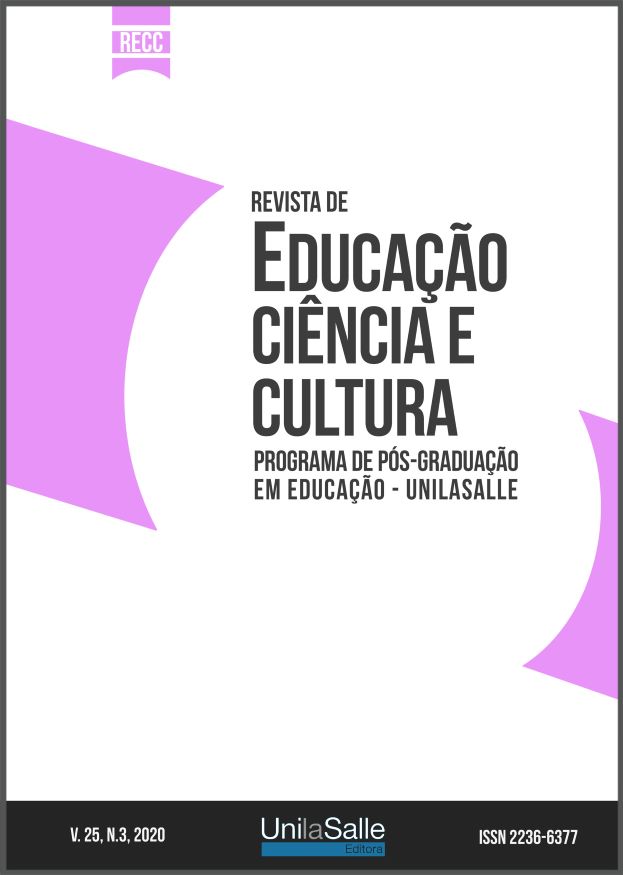Between historiographic sources and digital archives: memories of the school’s daily lives in Rondônia on Facebook
DOI:
https://doi.org/10.18316/recc.v25i3.5825Keywords:
As a device for social use, postings on social networks on the web also keep memories and stories lived in schools on. In an attempt to dialogue with the Postdoctoral research presented in the Postgraduate Program in Education of the State University of RAbstract
As a device for social use, postings on social networks on the web also keep memories and stories lived in schools. In an attempt to dialogue with the Postdoctoral research presented in the Postgraduate Program in Education of the State University of Rio de Janeiro, this work seeks to problematize the posts of the internet territories, more specifically in the Pages of the Colonial Schools on Facebook: Barão de Solimões, Carmela Dutra, Dom Bosco, and Duque de Caxias, considered sources for the historiography of Education. The choice of this object of study is justified because it is documentation in the virtual environment that can no longer be ignored by researchers. The narrations of users in digital environments establish a relationship with history, since they return to personal and collective memory, proposing new perspectives on the past. What circulates about northern institutions on Facebook? From history to history, the past of past students is composed and, among the memories, the stripping of school practices. What are the most shared subjects on this social network on the internet? The narrative instinct finds in the social network the ideal stage with sequences of actions that bring up the stories of the students. What can be understood as digital sensitivity? With cultural uses and practices, posts are sources that reflect emotions, feelings, stories, describing other school experiences between the media. Rodriguez de La Flor; Escandell Montiel
(2014), Eiroa San Francisco (2018), Pons Pons (2018), and Sordi (2019) help to reflect that new technologies pave the way by presenting other versions of the subjects’ life stories. In this sense, this work sought to contribute to studies on the History of Education in Rondônia.
Downloads
Published
Issue
Section
License
Authors must submit their manuscripts to be published in this journal agree with the following terms:Authors maintain the copy rights and concede to the journal the right of first publication, with the paper simultaneously licensed under the License Creative Commons attribution that permits the sharing of the paper with recognition of authorship and initial publication in this journal.
Since the articles are presented in this journal of public access, they are of free use, with their own attributions for educational and non-commercial purposes.
The Periodic Journal of Education, Science and Culture in http://www.revistas.unilasalle.edu.br/index.php/Educacao was licensed with a Creative Commons - Attribution - Noncommercial 3.0 Not Adapted.


